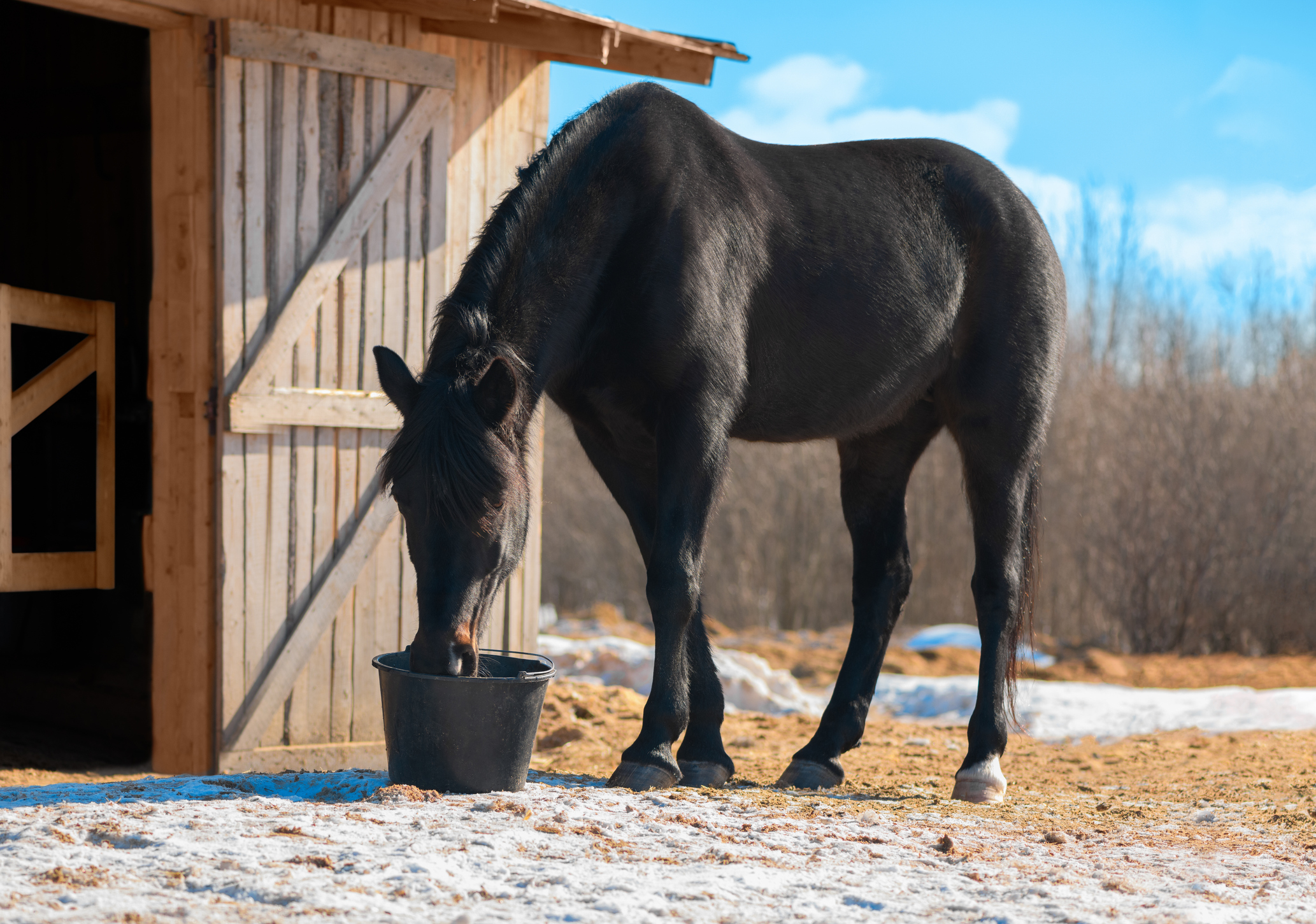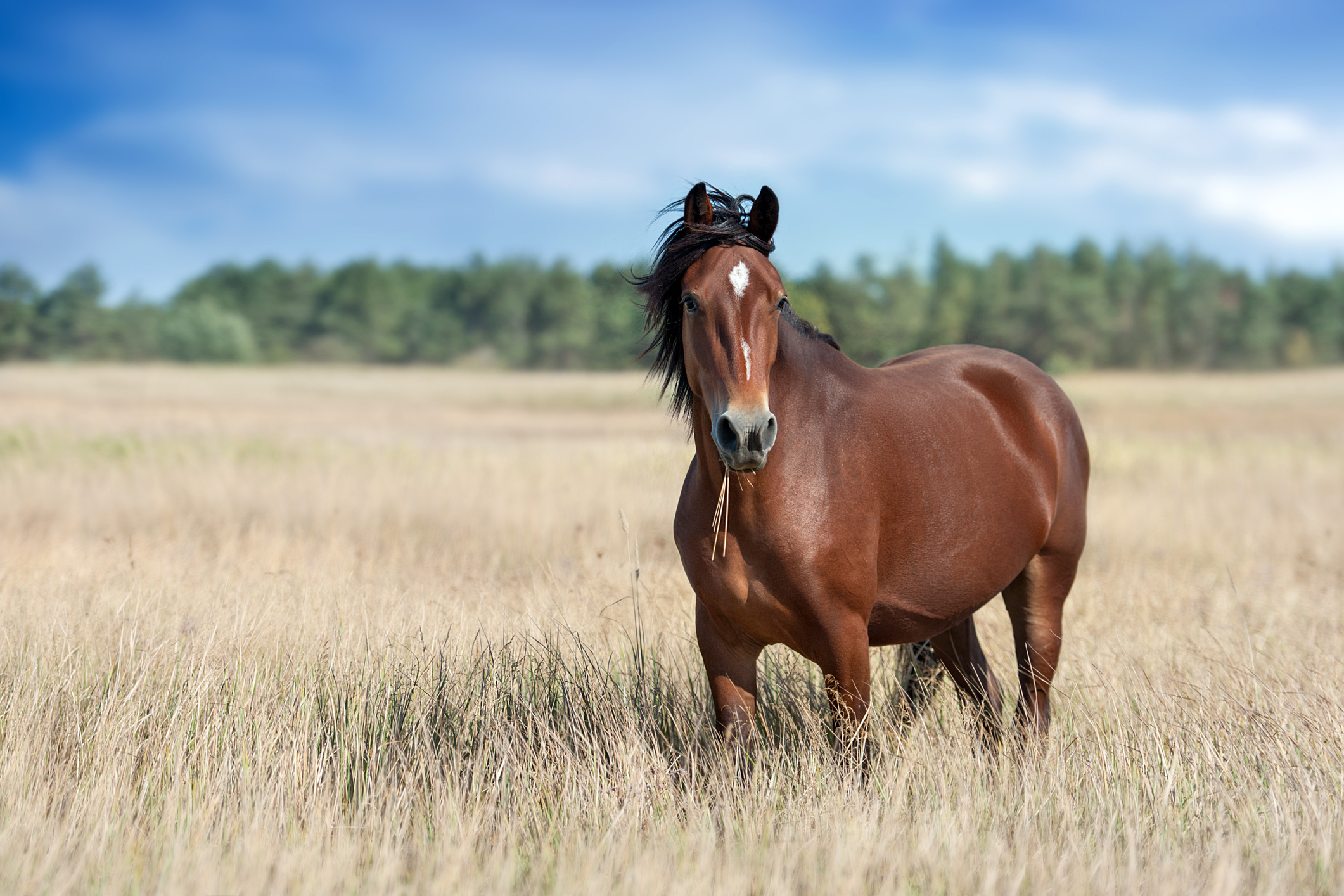Sources such as fish and marine oils provide Omega 3 in the form of EPA and DHA which are far more available to the horse than plant sources and therefore house a much greater therapeutic potential for assistance in Free Water Fecal Syndrome – FFWS. Equine Omega Complete and Equine Omega Vitamin E both contain deep water, wild caught fish oil as a component of their Patented formulas.
As passionate equestrians, we all understand that gastrointestinal health is a key cornerstone of effective horse care. However, there are often areas that can pose a puzzling picture and the occurrence of Free Fecal Water Syndrome (FFWS) represents one such curious piece. Ongoing investigations into this condition have proposed various management strategies and one such avenue of inquiry is the use of Omega 3.
FFWS, unlike diarrhea, which can be life-threatening in severe cases, FFWS generally is not a major concern to the horse however it should always be considered abnormal. Horses with free fecal water syndrome (FFWS) have normal droppings, but either before, during, or after defecation produce and expel additional liquid. This can lead to dirty hind legs, increasing the risk of dermatitis or inflammation of the skin, even increased risk of infection in mares with compromised perennial confirmation.
Although a definitive cause remains elusive, it is thought that various factors contribute to its development, including dietary imbalances, stress, mycotoxins, forage type, intestinal inflammation, and disruption to the gut microbiota. These factors can all affect normal gastrointestinal functioning leading to alterations in fecal consistency and water balance within the hindgut.
Maximizing the health of the large intestine should be the foundation for combating FFW. By promoting overall gut health, we can help to ensure intact tight junctions, between the cells lining the walls of the gut. If these junctions were to function incorrectly or even break down, which can happen in response to stressors, changes in gut permeability would result, negatively impacting the horse’s ability to absorb water and leaving them exposed to an increased risk of inflammation and undesirable molecules entering the bloodstream.
Butyric acid is a short-chain fatty acid that promotes the growth of tissues lining the GI tract and the development of the intestinal cells helps to ensure tight junctions, supporting gastrointestinal integrity, and helping to optimize nutrient absorption. Omega-3s have been shown in human research to increase the level of these short-chain fatty acids that are produced by the body, helping to improve gut health. However, in times of high stress the body would need additional help and butyric acid could be included in supplemental form to provide further support for the equine GI tract. A number of commercial feeds now contain butyric acid.
Additionally, the use of a hindgut buffer could be beneficial. This can help to balance the pH of the hindgut through stabilization of the microbial population helping to reduce the occurrence of FFWS. In other animal species and humans, studies have found that EPA and DHA may positively affect the composition and activity of the gut microbiota, fostering a healthier microbial ecosystem and reducing the risk of dysbiosis-associated problems.
As mentioned previously mycotoxins have been indicated as a potential cause of some cases of FFWS and products such as bentonite clays could be useful, especially in helping combat mycotoxins from contaminated feed, which is beneficial if you are feeding straight grains or raw materials from unknown sources. These clays may also help to reduce excess fluid in the intestine.
Recent studies have indicated that assessing the fiber provision of the diet could be useful for some horses. Plant maturity, cutting, and botanical composition may influence crude protein and the type of fiber content available, affecting overall digestibility. Less digestible hay has a lower water-holding capacity therefore if this type of fiber makes up the bulk of the diet, free fecal liquid may become more evident. Altering the type or form of fiber provided could go a long way to reducing FFWS.
For some this may mean a complete change of hay type, for others, it may mean replacing a portion of hay with a more digestible form such as chaff or hay cubes or pellets. However, some may need the complete removal of long-stemmed fiber, completely replacing it with hay cubes or pellets. Forage analysis could also be valuable by providing an estimation of digestibility.
Inflammation within the body can pose multiple threats to the horse, especially within the digestive system. Inflammation is a key driver of gastrointestinal dysfunction in horses with FFWS. Omega 3 EPA and DHA exhibit potent anti-inflammatory effects by inhibiting the production of pro-inflammatory mediators. These fatty acids also promote the synthesis of components that facilitate tissue repair within the gastrointestinal tract.
Conclusion:
Equine Free Fecal Water Syndrome poses significant challenges in equine health management, necessitating therapeutic interventions to improve long-term outcomes. EPA and DHA, with their potent anti-inflammatory, gastrointestinal regulatory, and mucosal healing properties, offer a promising avenue for managing FFWS in horses. While further research is warranted to elucidate the optimal dosing regimens and long-term effects of EPA and DHA supplementation in horses with FFWS, current evidence suggests that these omega-3 fatty acids may be a useful addition of a management strategy for this condition.
For more information: jennifer@o3animalhealth.com or (855) 366-8822
Ordering: https://o3animalhealth.com/shop



